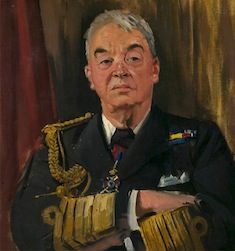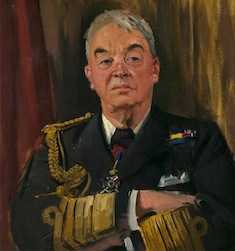
Bulletin #69 - Mar 2014
Churchill & Fisher at the Admiralty

February 28, 2014
New Analysis of Royal Navy Before First World War
 Admiral FisherThe centenary year of the start of the First World War marks an appropriate time to re-examine Churchill’s role in preparing the British fleet for battle. Prof. Chris Bell of Dalhousie University, author of the recently published Churchill and Sea Power, was a featured speaker at The Churchill Centre’s 30th International Churchill Conference in Washington, DC last November and is a long-time member and supporter of the Centre. Prof. Bell continues his innovative research on Churchill as a naval strategist with a new paper “Sir John Fisher’s Naval Revolution Reconsidered: Winston Churchill at the Admiralty 1911-1914.”
Admiral FisherThe centenary year of the start of the First World War marks an appropriate time to re-examine Churchill’s role in preparing the British fleet for battle. Prof. Chris Bell of Dalhousie University, author of the recently published Churchill and Sea Power, was a featured speaker at The Churchill Centre’s 30th International Churchill Conference in Washington, DC last November and is a long-time member and supporter of the Centre. Prof. Bell continues his innovative research on Churchill as a naval strategist with a new paper “Sir John Fisher’s Naval Revolution Reconsidered: Winston Churchill at the Admiralty 1911-1914.”
In his paper, published in the journal War in History, Prof. Bell challenges claims by revisionist historians that in July 1914 the Royal Navy was on the verge of instituting a “naval revolution” based on the ideas of Admiral Sir John Fisher. Winston Churchill, the First Lord of the Admiralty, was not prepared to rely on Fisher’s concept of “flotilla defence” in the North Sea, as revisionists contend. Nor did he wish to send capital ships to distant waters. He increasingly looked to submarines to protect Britain’s interests in the Mediterranean, a secondary theatre, but he still believed that Britain must maintain a preponderance of strength over Germany in capital ships in the North Sea. Churchill’s strategic views were generally conservative. He hoped that new designs or new technologies would one day allow submarines to supplant battleships, and he actively supported measures that might help to make this possible. But there is no evidence that he and his naval advisers were ready to gamble on a radical departure in force structure or naval strategy on the eve of the First World War.
To read the complete article, please click on this link: Naval_Revolution_Reconsidered.pdf
Subscribe
WANT MORE?
Get the Churchill Bulletin delivered to your inbox once a month.




